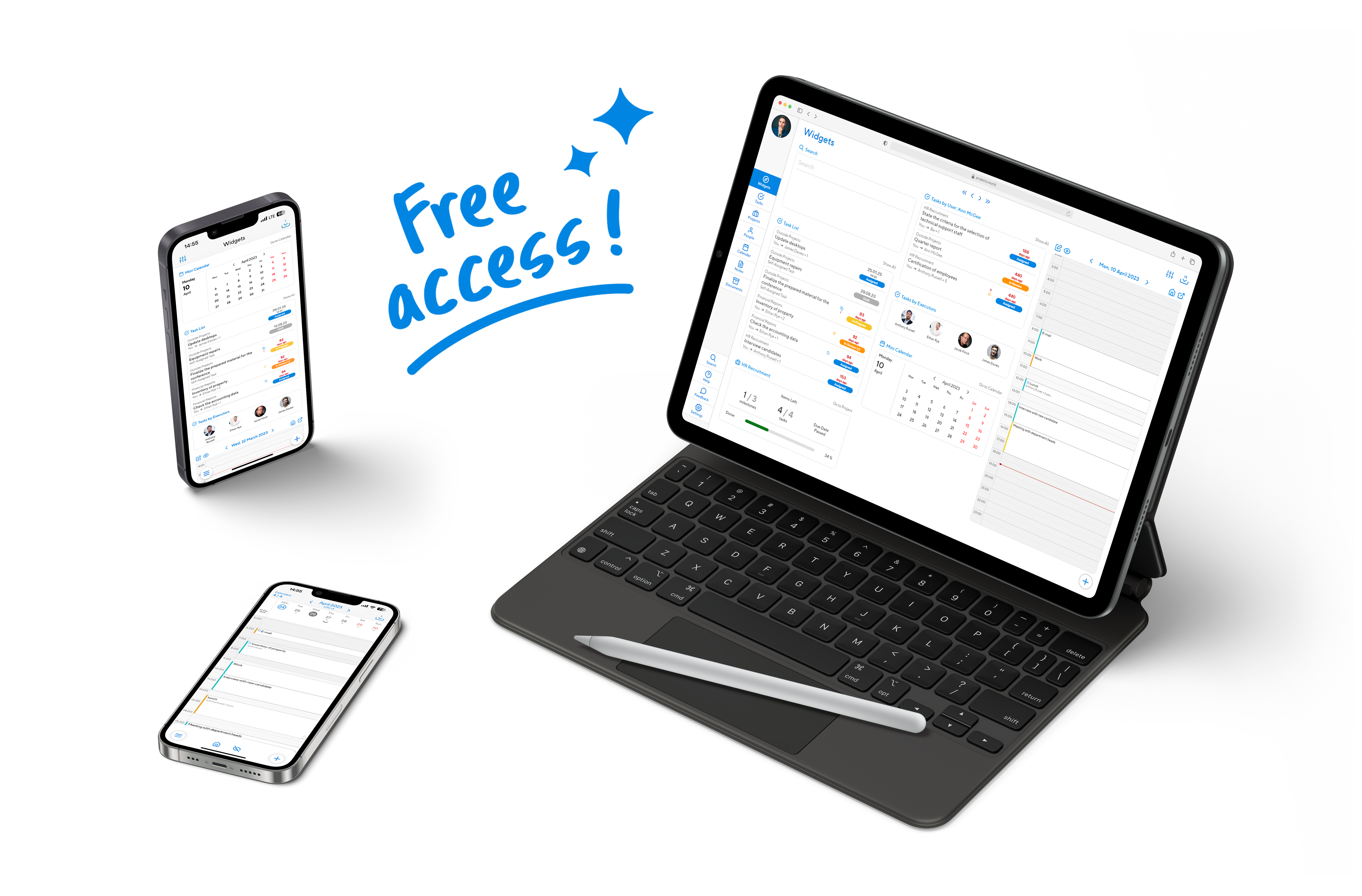The modern pace of work and life may seem unrealistically difficult for generations born half a century or more ago. But this does not mean that in order to achieve success in the past, you had to work less. No. It is enough to remember L. Carroll’s famous phrase about running in place, spoken by the Rabbit in the Looking-Glass: “Now, here, you see, it takes all the running you can do, to keep in the same place. If you want to get somewhere else, you must run at least twice as fast as that!”. And the book was written in 1871.
Nothing has changed today: you need to have a lot of time and make few mistakes. What has changed is the structure of tasks and the scientific approach to organizing them.
Below are our tips for improving the efficiency of your personal and working time management.
1. Don’t get distracted
The same principle works: ‘I see the goal, I don’t see any obstacles’. If you gather all your forces and direct them to something specific, it will be easier to achieve the desired result. But effective concentration has its own rules.
Only small tasks that are not related to the main task (cannot affect the result) should be considered as distractions. For example, interactions on personal topics in social networks and messengers, sending memes and other activities that have nothing to do with the work process. They simply steal your time.
If the task is small but influences the result of the main project, it is not a ‘distraction’ at all, but just another subtask that should never be forgotten. It should also be put on the schedule and done.
2. Don’t procrastinate until the last minute (do it in advance)
One of the most sound pieces of advice. You don’t need to rush things or work ahead of time. No, you should just try to get the work done a little earlier. Otherwise, you don’t have much room to maneuver.
For example, if you make minor mistakes, you simply won’t have time to fix them. The quality of the result suffers and, as a result, your reputation as a performer and as a professional is damaged.
In order to achieve this effect, it is necessary to work systematically: do something faster, set deadlines with a reserve (if possible), and it is best to set a time reserve at the initial planning stage.
Maintaining a dynamic pace is essential. It’s like running a long distance race. If you run out of breath right away, you will be among the last to finish, if you even make it to the finish line.
3. Learn to say no
Superfluous work equals unnecessary problems and less time for the realization of basic tasks. Don’t steal precious resources from yourself. Learn to refuse to do work that should not be done by you.
The main thing to remember is that there is a big difference between ‘Help me’ and ‘Do it for me’.
4. Plan breaks
Busy schedules, heavy workloads and responsibilities — sometimes it feels like the world would fall apart without you. To level the effects of accumulated fatigue and balance your energies properly, you need to make time for rest.
If you can’t do it in a simple way, for example, if you have a floating schedule with no time for breaks and smoke breaks, then you need to force rest into your personal schedule.
Just during these intervals you can solve some personal issues and perform non-work-related activities (personal correspondence, calls to loved ones, scrolling the news feed, etc.).
5. Write everything down
In a busy schedule, it’s easy to forget and overlook things. If you do not have special software within your company that is responsible for corporate correspondence, for setting and controlling tasks, projects, ideas, etc., use a notebook, stickers or any other handy materials.
But if the note was made spontaneously, on the first scrap of paper you find, you should allow time to transfer this information into a more convenient format. Otherwise, it will simply get lost and forgotten.
6. Split complex tasks
‘Divide and conquer!’ — it’s a truth as old as time. There’s no need to try to cover a lot of ground. You won’t have time for anything anyway. Break down the tasks on your list to a level that allows you to realize them within at least one working day.
Schemes broken down into intervals of 15 minutes to an hour or two are no less effective. But in this way you can very quickly approach the format of micromanagement, which in itself implies too low degree of freedom (as a result, motivation and productivity can drop).
7. Use the task planner and work calendar
The ideal solution is to use specialized software. It will help you automate many projects, notify you in time about upcoming tasks, control deadlines, agree on further actions, etc.
All this routine can and should be delegated to the program.
For small and medium-sized organizations, we recommend the Projecto platform, which provides:
- Working in a reliable cloud infrastructure.
- Prompt notifications via various communication channels, including push-notifications in special mobile apps.
- Division of tasks into subtasks, as well as maintenance of work calendars.
- Delegating tasks, monitoring and receiving feedback on the current status.
- Keeping personal and corporate correspondence and discussions.
- Visual presentation of tasks in different formats (Gantt charts, Kanban board, etc.).
- Accounting of internal documents and contacts of counterparties.
- And much more.
You can get acquainted with the demo version of the service here.
